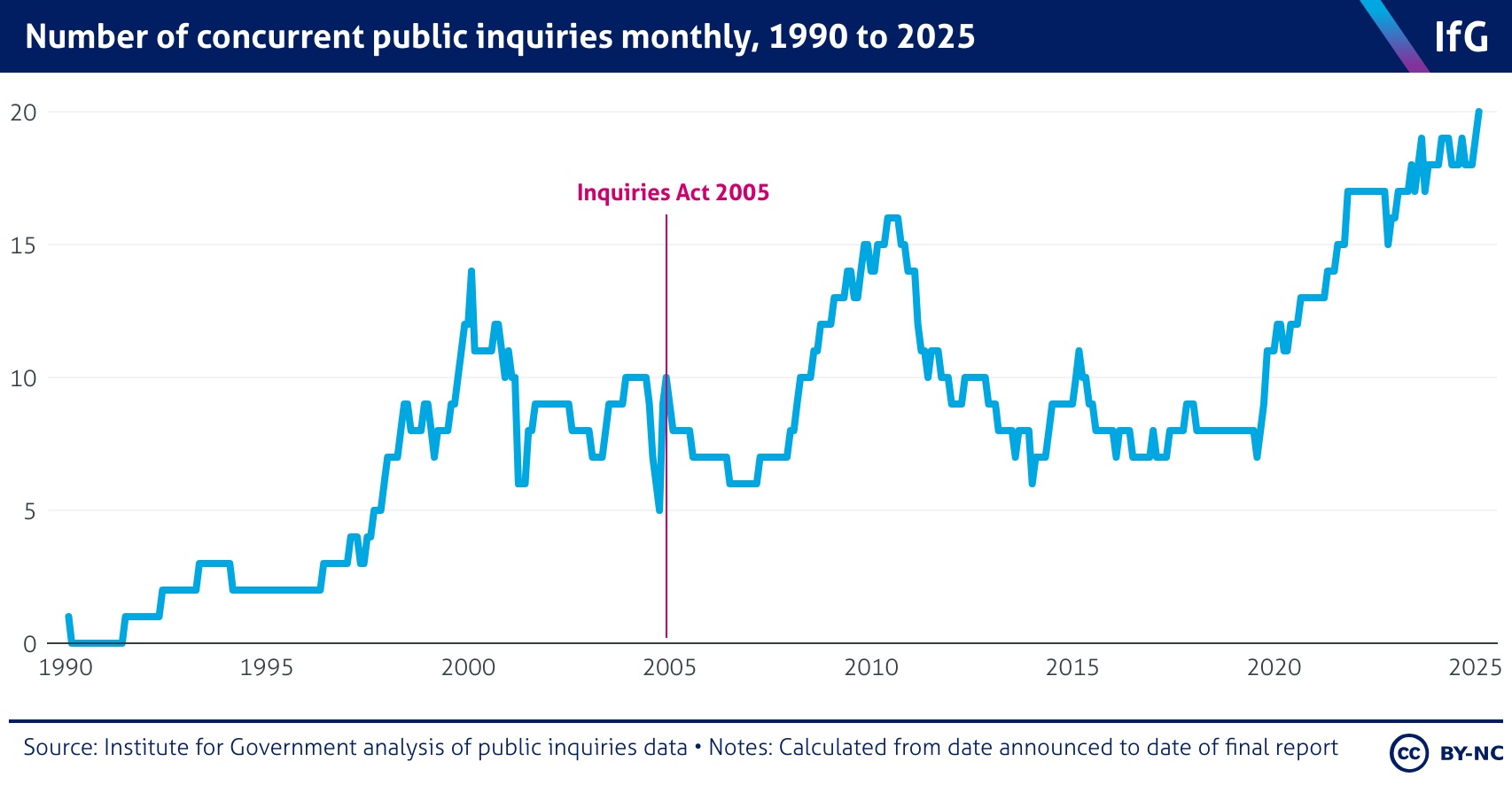If it feels as though the frequency of public inquiries has increased in recent years, that’s because it has, significantly.
1. Introduction
There are currently 20 ongoing public enquiries in the UK, with two of those announced just this year. Among them are the already underway UK Covid-19 Inquiry, Post Office Horizon IT Inquiry, the Thirlwall Inquiry and the inquiry into the Nottingham attacks. These high-profile investigations call on witnesses, and experts in various fields, to piece together what happened and why, and how to prevent similar events occurring again in the future.
With the frequency of inquiries increasing, the likelihood that emergency responders, public bodies, and other witnesses will be called to give evidence is also greater. Therefore, it is critical that these parties are competent and confident to carry out their roles to best practice standards.
2. What is a public inquiry?
A public inquiry is an official investigation conducted by an independent body to examine a particular event or set of events that gave rise to matters of public concern. During a public inquiry many individuals can be called to give evidence.
There are two types of public inquiry: statutory and non-statutory. Under the Inquiries Act 2005, a statutory inquiry can compel testimony from witnesses and demand the release of other forms of evidence.
The Ministry of Justice states the primary purpose of an inquiry to be “preventing recurrence” of whatever matter of public concern arose. How this is achieved varies from inquiry to inquiry, but it will likely involve making recommendations. Specific terms of reference will outline the remit of a public inquiry and will address the questions that the inquiry is expected to answer.
It is also possible for a non-statutory inquiry to be converted to a statutory inquiry, which is what happened with the Post Office Horizon IT Inquiry.
3. Why have public inquiries increased in recent years?
Figures from the Institute for Government show that prior to June 1997, there were never more than three inquiries running at the same time. In stark contrast, the current 20 is the highest number ever to run concurrently.
Moreover, between 1990 and 2025, 88 public inquiries have been launched, compared with only 19 in the 30 years before 1990.
Alongside the increase in the number of inquiries, the Institute For Government has identified a long-term shift away from other forms of investigation such as royal commissions.
The arrival of the Inquiries Act 2005 goes some way to explaining changes. It streamlined the process for setting them up and gave ministers greater discretion to launch them, making it easier than it had been.
However, societal changes also play a big role. As the internet has evolved, spawning social media, alongside the emergence of 24/7 news, there is a greater awareness of matters that affect the public, and with it a greater demand for accountability.
Various events have led to a growing distrust of public bodies, such as the government, police, and the NHS, fuelling yet greater demand for matters of public concern to be investigated and prevented from reoccurring. As such, this is likely to be a continuing trend.

In September 2024, The House of Lords Statutory Inquiries Committee made several recommendations related to following up and implementing the findings of public inquiries.
It was suggested that a joint committee of both Houses of Parliament should be established to publish inquiry reports and government responses in one place, and then to monitor the implementation of inquiry recommendations.
In February 2025 the government accepted many of the recommendations. As such, scrutiny is likely to continue beyond the inquiry itself, and those with a role to play in civil protection may find they are required to provide ongoing updates on the status of inquiry recommendations.
4. How can Bond Solon help witnesses prepare to give evidence in inquiries?
For over 30 years, Bond Solon has provided witnesses with essential support and guidance prior to giving evidence in any type of legal forum, regulatory hearing, meeting or interview. Our band 1 ranked services (Chambers & Partners) are designed for both factual and expert witnesses, whether they have given evidence numerous times or are giving evidence for the first time.
Our large pool of lawyers – stemming from all practice areas and with extensive experience of preparing witnesses for testimony – have worked with over 250,000 witnesses to help build their confidence and enhance their ability to give evidence that will stand up under cross-examination. These include witnesses called to give evidence at many high-profile inquiries over the years, including but not limited to the Grenfell Tower Inquiry, the Manchester Arena Inquiry, the Edinburgh Tram Inquiry and the UK Covid-19 Inquiry.
Bond Solon believes that no witness should be disadvantaged by not understanding the process or be taken by surprise when giving evidence. Our training sessions address these potential pitfalls head-on, equipping witnesses with the understanding, skills and confidence needed so that they can navigate the process successfully, helping mitigate risk and achieve the best possible outcome. To enhance our interactive and innovative training offering, we have developed a collection of virtual reality courtrooms, including an inquiry-specific virtual courtroom.
For more information about our witness familiarisation training or to book a session, please contact a member of the Bond Solon team on 020 7549 2549 or info@bondsolon.com


